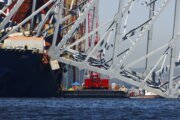EDITH M. LEDERER
Associated Press
UNITED NATIONS (AP) — Venezuela has taken the spotlight in this year’s campaign for coveted seats on the U.N. Security Council but the hottest race is between New Zealand, Spain and Turkey whose foreign ministers are in New York this week lobbying for votes.
The U.N. General Assembly’s 193 member states will vote Thursday to elect five new members to the U.N.’s most powerful body and Venezuela’s socialist government is virtually certain to win because it is unopposed for the single seat allocated to Latin America and the Caribbean.
Angola is the only candidate for an African seat and Malaysia has no opposition for a single seat for Asia, so their victories are also virtually assured.
Venezuela has gotten the headlines this year because its last attempt to get on the Security Council in 2006 by the late Venezuelan president Hugo Chavez was torpedoed by the United States. But despite current President Nicolas Maduro’s close ties with Syria’s President Bashar Assad and Iran and its support for Russia over the Ukraine crisis, the United States chose not to publicly oppose Venezuela’s candidacy this year.
That means all eyes will be on New Zealand, Spain and Turkey who are competing for two seats representing the Western group of nations.
The behind-the-scenes campaign by the three countries has been going on for the past year.
Diplomats from New Zealand, Spain and Turkey have traveled the globe and invited U.N. diplomats to visit their countries. This week, the campaign moved into the open with all U.N. ambassadors invited to separate receptions Monday night hosted by the foreign ministers of New Zealand and Spain, and to a reception by the Turkish foreign minister on Wednesday evening.
The verdict of seasoned diplomats is the vote will be close — too close to predict the winners.
New Zealand’s U.N. Ambassador Jim McLay told AP he was “cautiously optimistic.”
Turkey’s U.N. Ambassador Halit Cevik called it “a very tight race” but said he is “strongly hopeful.”
Spain’s Foreign Minister Jose Manuel Garcia-Margallo told Monday’s reception that all the candidates have “very solid credentials.” But he stressed: “My country presents a great spirit of service to the international community and a very large participation and tradition in peace operations.”
Security Council seats are highly coveted because they give countries a strong voice in matters dealing with international peace and security from Syria to the Central African Republic, sanctions against Iran and North Korea, terrorist activities by groups such as the Islamic State, and the U.N.’s far-flung peacekeeping operations.
The 15-member council includes five permanent members with veto power — the U.S., Russia, China, Britain and France — and 10 nonpermanent members elected for two-year terms. Seats are allocated by region, and regional groups nominate candidates.
To win, each country must obtain support of two-thirds of all General Assembly members present, or a minimum of 129 votes if all 193 members participate.
There are often hotly contested races. In 2007, for example, a runoff between Guatemala and Venezuela went 47 rounds with neither country able to get two-thirds of the vote. Finally, Latin American nations offered Panama as a compromise candidate and it easily won the seat.
Because balloting is secret, there is intense lobbying for votes by candidates, even in uncontested races, to ensure they get the minimum number needed for victory. There are many stories of countries thinking they had promises of enough votes and then going down to defeat.
Last year, just hours after winning a place on the Security Council for the first time, Saudi Arabia did a stunning about-face and in an unprecedented move rejected the seat, denouncing the body for failing to resolve world conflicts such as the Syrian civil war.
Winners in Thursday’s election will join the Security Council on Jan. 1 and serve through the end of 2016. They will replace Argentina, Australia, Luxembourg, South Korea and Rwanda.
Copyright 2014 The Associated Press. All rights reserved. This material may not be published, broadcast, rewritten or redistributed.







